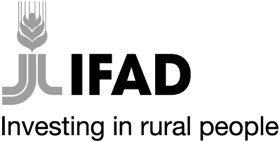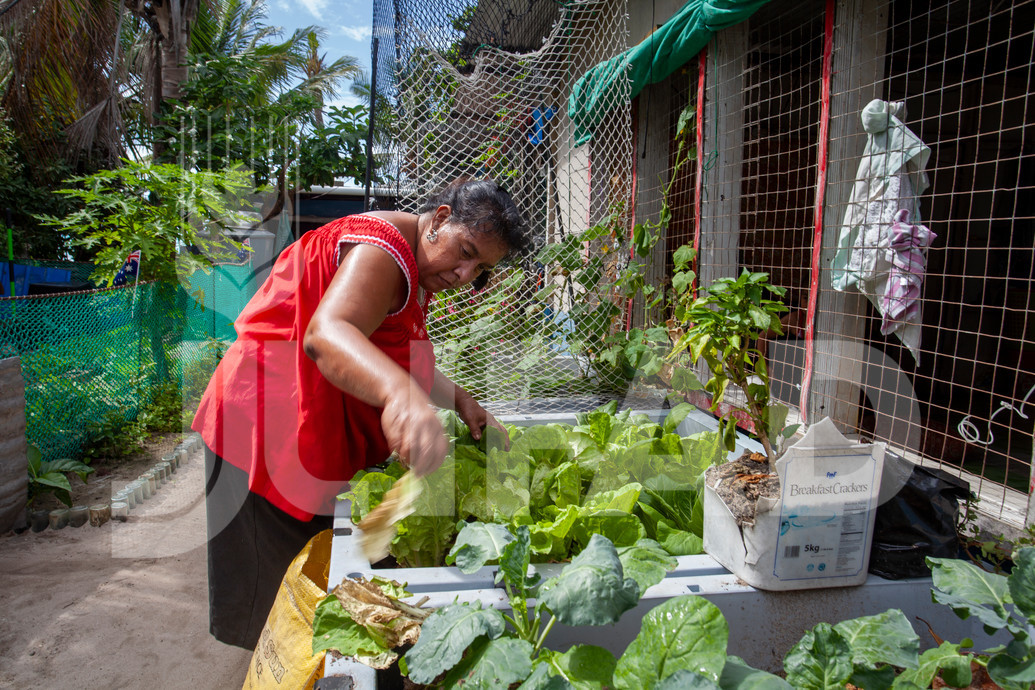| ID: | 83720 |
|---|---|
| Country: | Kiribati |
| Title: | Kiribati – Pacific Islands Rural and Agriculture Stimulus Facility (PIRAS) – December 2023 |
| Description: |
Boite Tiata tends cabbage planted in food cubes she received from the PIRAS project in her garden in Betio, Tarawa. Boite Tiata, 50 years old, lives with her husband and two children in Betio on Kiribati’s main island, Tarawa. She joined the PIRAS project in mid-2022 and is head of the Veti Kainga (extended family association). “This activity has been very beneficial for my family, especially in terms of the income I can earn selling my crops. In the past we were unemployed, and we struggled a lot with our basic needs. Now, thanks to gardening, I am so proud that I can provide for my family.” Boite plants several different kinds of vegetables in her garden, like cucumbers and eggplants. But she focuses mainly on growing cabbage, which is her most lucrative cash crop. She sells about 100 cabbages per month, mostly to customers who come to her garden. But she also sells produce to a nearby restaurant. From cabbage alone she earns an average of AU$ 300 per month. With her earnings, Boite provides necessities for her family and most importantly can pay her daughter’s school fees at the Kiribati Institute of Technology. PIRAS provided Boite with food cubes, seeds and seedlings, as well as training on how to make compost to enrich the sandy soil. She learned to mix different organic materials with the sand – fresh and dried leaves, ashes, seaweed and iron scaled from rusty cans – to create a nutrient rich growing environment for growing vegetables. The foodcubes provide a convenient and cost-effective solution for growing vegetables in areas where access to water is a challenge. Their height makes it easier for Boite to mix the compost with sand for cultivation, and to weed and water the plants. She has connected several of the one-square-meter aerated growing units to form a larger foodcube garden. Water usage is efficiently managed by wicking cones that slowly but continuously provide plants with water, and air-posts allow oxygen to reach the roots to minimize root rot and prevent overheating. “I plan to continue with my small garden and hope to be able to expand it in the future. To my fellow women, especially my friends and relatives, I wish to motivate and encourage them to engage in agriculture as it will help them provide what they need for their family now and in the future.” Launched in 2022 in collaboration between IFAD and the Australian Government, the Pacific Islands Rural and Agriculture Stimulus (PIRAS) Facility is a regional initiative that aims to minimize the impact of the COVID-19 pandemic on rural island households. The programme supports food system and economic recovery by prioritizing food self-reliance, improving local nutrition and developing sustainable, equitable agricultural livelihood opportunities for rural communities in Fiji, Kiribati, Samoa, Solomon Islands, Tonga and Vanuatu. In Kiribati, PIRAS works in collaboration with the Atolls Food Future Project, implemented by Live and Learn Environmental Education, and focuses on increasing farm production, nutrition and climate resilience by providing farmers and gardeners with nutrition-sensitive seedlings and planting materials, labour-saving tools, and equipment. It trains them in the safe use and maintenance of water tanks, composting production and soil preparation, and liquid fertilizer production and application. |
| Size: | 13.02 MB; 5616 x 3744 pixels; 475 x 317 mm (print at 300 DPI); 1486 x 991 mm (screen at 96 DPI); |
| Show more details: | Marco Salustro |
| Copyright: | ©IFAD/ Marco Salustro |
| Categories: | New from Asia and the Pacific |

